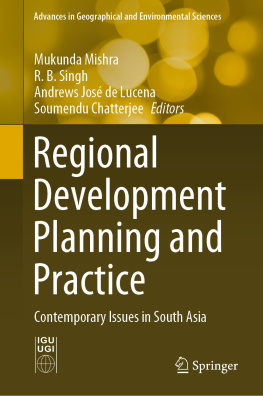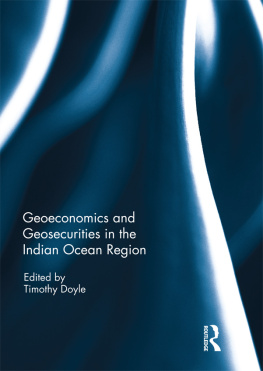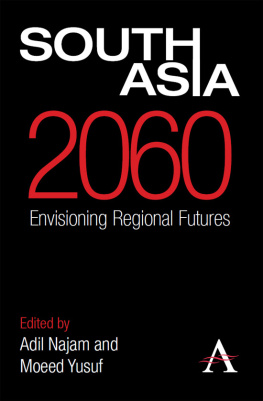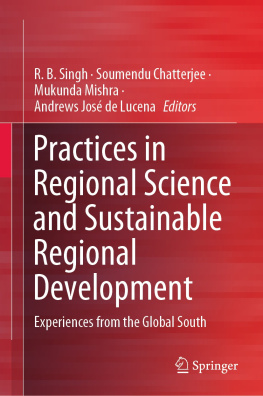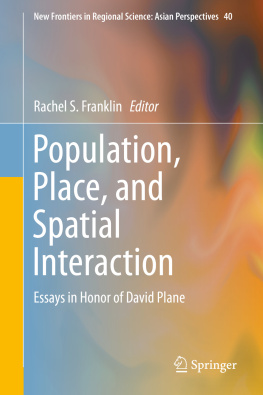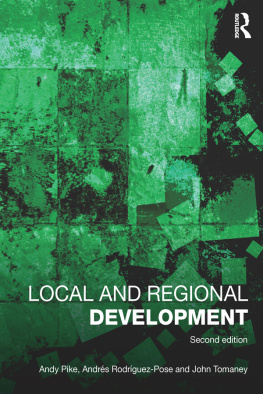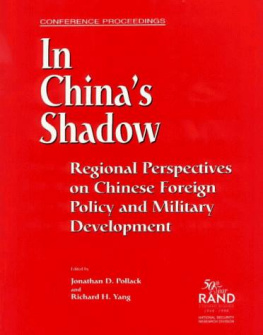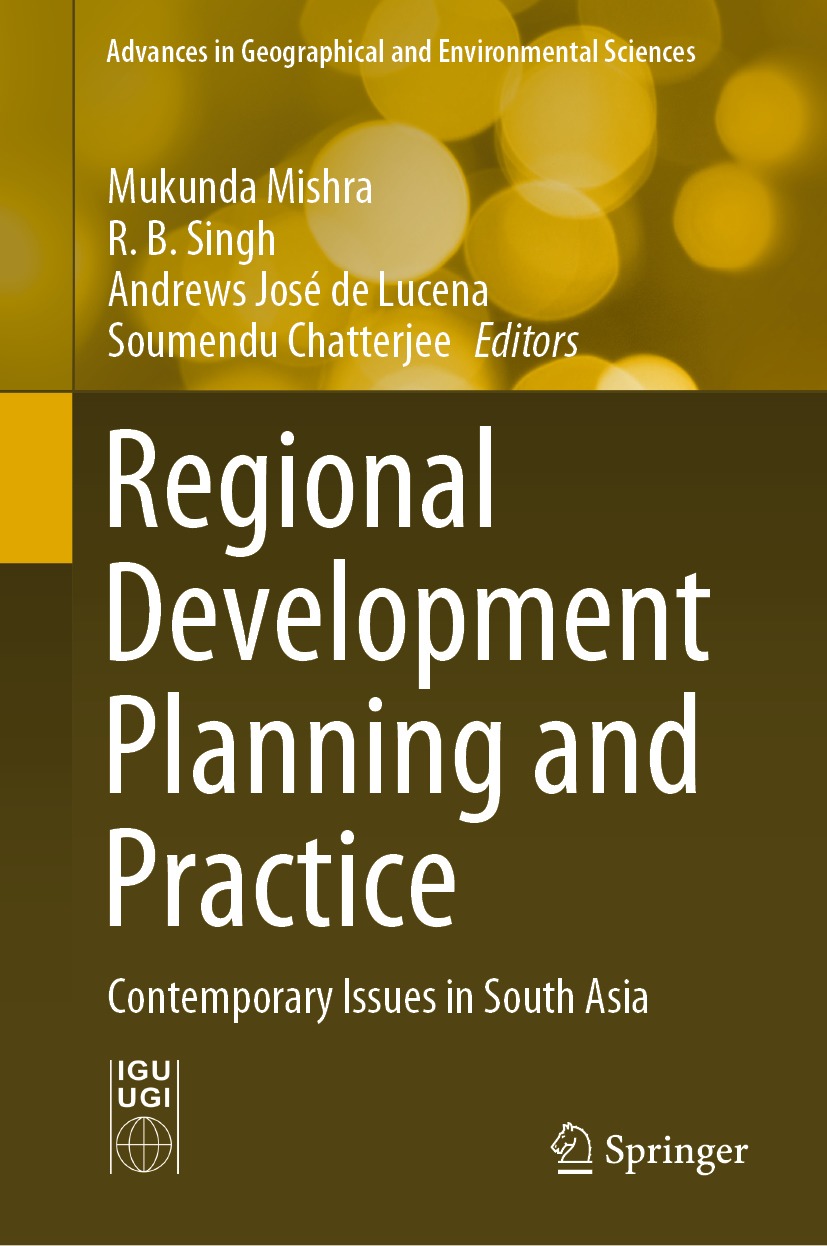Advances in Geographical and Environmental Sciences
Series Editor
R. B. Singh
University of Delhi, Delhi, India
Advances in Geographical and Environmental Sciences synthesizes series diagnostigation and prognostication of earth environment, incorporating challenging interactive areas within ecological envelope of geosphere, biosphere, hydrosphere, atmosphere and cryosphere. It deals with land use land cover change (LUCC), urbanization, energy flux, land-ocean fluxes, climate, food security, ecohydrology, biodiversity, natural hazards and disasters, human health and their mutual interaction and feedback mechanism in order to contribute towards sustainable future. The geosciences methods range from traditional field techniques and conventional data collection, use of remote sensing and geographical information system, computer aided technique to advance geostatistical and dynamic modeling.
The series integrate past, present and future of geospheric attributes incorporating biophysical and human dimensions in spatio-temporal perspectives. The geosciences, encompassing land-ocean-atmosphere interaction is considered as a vital component in the context of environmental issues, especially in observation and prediction of air and water pollution, global warming and urban heat islands. It is important to communicate the advances in geosciences to increase resilience of society through capacity building for mitigating the impact of natural hazards and disasters. Sustainability of human society depends strongly on the earth environment, and thus the development of geosciences is critical for a better understanding of our living environment, and its sustainable development.
Geoscience also has the responsibility to not confine itself to addressing current problems but it is also developing a framework to address future issues. In order to build a 'Future Earth Model' for understanding and predicting the functioning of the whole climatic system, collaboration of experts in the traditional earth disciplines as well as in ecology, information technology, instrumentation and complex system is essential, through initiatives from human geoscientists. Thus human geosceince is emerging as key policy science for contributing towards sustainability/survivality science together with future earth initiative.
Advances in Geographical and Environmental Sciences series publishes books that contain novel approaches in tackling issues of human geoscience in its broadest sensebooks in the series should focus on true progress in a particular area or region. The series includes monographs and edited volumes without any limitations in the page numbers.
More information about this series at https://link.springer.com/bookseries/13113
Editors
Mukunda Mishra , R. B. Singh , Andrews Jos de Lucena and Soumendu Chatterjee
Regional Development Planning and Practice
Contemporary Issues in South Asia
1st ed. 2022

Logo of the publisher
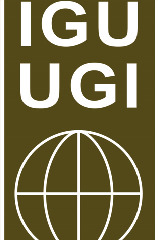
Logo of the publisher
Editors
Mukunda Mishra
Department of Geography, Dr. Meghnad Saha College, Uttar Dinajpur, West Bengal, India
R. B. Singh
Department of Geography, University of Delhi, New Delhi, Delhi, India
Andrews Jos de Lucena
Federal Rural University of Rio de Janeiro, Rio de Janeiro, Brazil
Soumendu Chatterjee
Department of Geography, Presidency University, Kolkata, West Bengal, India
ISSN 2198-3542 e-ISSN 2198-3550
Advances in Geographical and Environmental Sciences
ISBN 978-981-16-5680-4 e-ISBN 978-981-16-5681-1
https://doi.org/10.1007/978-981-16-5681-1
The Editor(s) (if applicable) and The Author(s), under exclusive license to Springer Nature Singapore Pte Ltd. 2022
This work is subject to copyright. All rights are solely and exclusively licensed by the Publisher, whether the whole or part of the material is concerned, specifically the rights of translation, reprinting, reuse of illustrations, recitation, broadcasting, reproduction on microfilms or in any other physical way, and transmission or information storage and retrieval, electronic adaptation, computer software, or by similar or dissimilar methodology now known or hereafter developed.
The use of general descriptive names, registered names, trademarks, service marks, etc. in this publication does not imply, even in the absence of a specific statement, that such names are exempt from the relevant protective laws and regulations and therefore free for general use.
The publisher, the authors and the editors are safe to assume that the advice and information in this book are believed to be true and accurate at the date of publication. Neither the publisher nor the authors or the editors give a warranty, expressed or implied, with respect to the material contained herein or for any errors or omissions that may have been made. The publisher remains neutral with regard to jurisdictional claims in published maps and institutional affiliations.
The authors of individual chapters are solely responsible for ideas, views, data, figures, and geographical boundaries presented in the respective chapters of this book, and these have not been endorsed, in any form, by the publisher, the editor, and the authors of forewords, preambles, or other chapters.
This Springer imprint is published by the registered company Springer Nature Singapore Pte Ltd.
The registered company address is: 152 Beach Road, #21-01/04 Gateway East, Singapore 189721, Singapore
Foreword
I am delighted that Springer Nature Singapore Pte Ltd. has published this book, Regional Development Planning and PracticeContemporary Issues in South Asia, edited by Mukunda Mishra, R. B. Singh, Andrews Jos de Lucena, and Soumendu Chatterjee. The editors are to be congratulated for their work to prepare a volume that is so timely and appropriate.
Geographers have long stressed the need to regard development as a regional process, Development planning is invariably more effective when responsive to, and customized to, a particular region's needs. Of course, this demands attentiveness to locale. Successful regional development planning also requires the right tools, methods, conceptual frameworks, and data. Paying particular attention to regional development in South Asia this book sheds light on these key elements in chapters by academics and planning practitioners from Bangladesh, Brazil, India, Mexico, Nepal, Poland, and Sri Lanka.
Collectively, the chapters of this book aspire to contribute to better understandings of, and practices for, sustainable regional development. They do so through coverage of a wide range of contemporary issues including climatic and other environmental changes, human health, gender inequality, accessibility, challenges associated with displaced populations, and tribal livelihood strategies in addition to more conventional themes such as regional inequalities and regional urban problems.
Notably, the editors have emphasized the importance of experiences in South Asia, a diverse region which confronts critical economic, demographic, environmental, and societal challenges. There is much to be learned both within the region and further afield from the experiences of the contributing scholars.

